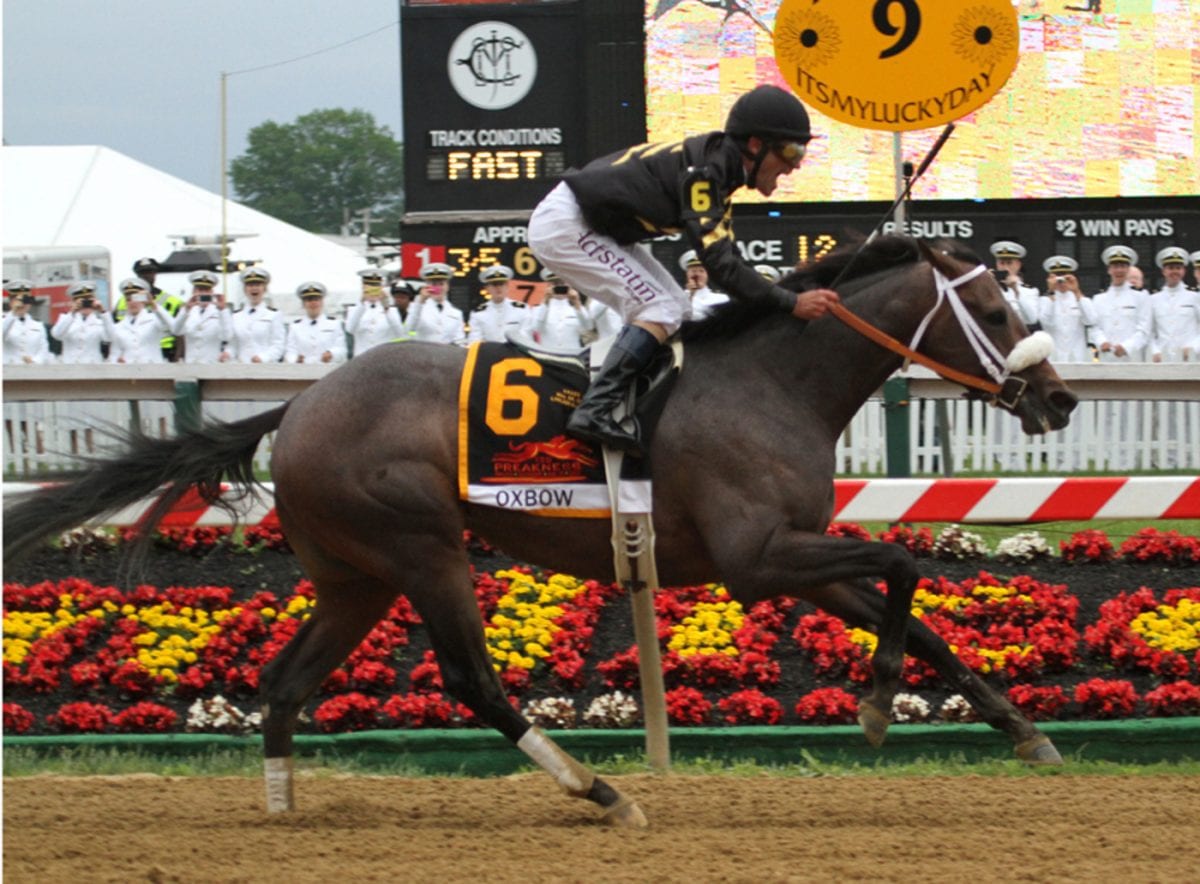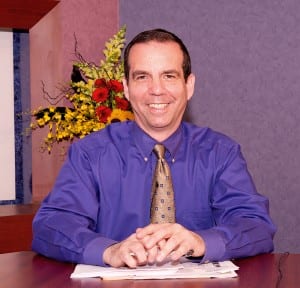by Nick Hahn
Watch, think and talk.
It sounds like something easily done. For anyone who has tried to call races, however, mastering these simple tasks simultaneously while maintaining a level of accuracy and interest isn’t easily accomplished.
Fortunately, with Dave Rodman’s professionalism and sharp eye, all we have to do is listen this summer at Colonial Downs to hear someone who has mastered the combination. Calling races is more difficult that it sounds, and good track announcers don’t perform their roles casually.
“I think you have to understand the game a little bit, a lot and you also have to like it, every part about it…the betting part, the people part,” explains Rodman, a staple of Colonial Downs’s signal.
Rodman started calling races at Louisiana’s Jefferson Downs in 1981. He left Louisiana Downs in 1991 to call races in Maryland. Rodman has called nearly all of Colonial’s races, starting with their grand opening in 1997.
“It’s one of the prettiest tracks I’ve ever been to as far as the scope because of the turf course and the backdrop and because of the quietness of its location,” observes Rodman. “It’s like putting pari-mutuel at Fair Hill almost.”
Not only is Rodman a good announcer, he is also esepcially adept in New Kent, where Colonial’s massive Secretariat Turf Course poses challenges.
“The turf course being so wide presents a lot of close finishes and tough calls,” he notes. “The turf course is so wide and it’s very far away from you. When it comes down to a close finish, it’s a lot more difficult to call a close finish there than at Pimlico or Laurel because the [Maryland] courses are closer to your point of view.”
Especially challenging is the inner turf course, where 14 horse fields can build the degree of difficulty leaving contestants well spaced.
“On the inner course at Colonial, it becomes a lot more difficult, particularly when there is a horse inside and outside rather than head to head and side by side.”
In Maryland, Rodman’s binoculars are usually focused on the outer dirt track at Pimlico, Laurel and Timonium, so the Secretariat Turf Course at Colonial creates a different point of view.
“It takes a day or two to get acclimated to your points of reference and where you are and where the wire really is in relation to where you’re looking at it from 5 to 6 stories above,” he says.
Still, Rodman’s eyes, as they have done so many times, found the winner in the 2007 Preakness when nobody wanted to separate Street Sense and Curlin at the wire. Following a race can be hard enough; describing it in a compelling way is talent.
Recently the Maryland Jockey Club opened up Rodman’s lair to local TV and radio celebrities in Maryland allowing them to call a race each. Rodman himself was once a disc jockey in New Orleans.
“I think they all came well-prepared,” critiques the professional. “Everyone had done their homework. They mostly had trouble as horses entered the far turn and moving away from them. They lost perspective of where they are on the track.”
Via AM transistor radio, Rodman grew up listening to Galloping George Henderson and Happy Herb Holiday announce and talk racing on local Louisiana airwaves, sometimes clandestinely at school. Nowadays, it’s his voice that delivers the racing scene.
Rodman has seen everything from the incredible to the absurd. When a fan ran onto the stretch on Preakness day in 1999 to throw a punch at a horse, Rodman had the call — gasping only briefly after the fan’s punch missed miserably. A few weeks ago, Rodman maintained the call on a horse that bolted the turn and ran on the outside rail at the top of the stretch. The horse finished second despite tracking home with the movable starting gate between him and the rest of field on the inner rail; Rodman didn’t miss a beat.
With Pimlico closing on Virginia’s opening day on June 8th, Maryland and Virginia will be racing on the same day for the first time in history — hardly a cooperative effort among the two states. Rodman won’t be heard on opening day at Colonial, a drawback for Virginia Thoroughbred racing fans eager for their first day at the track in ten months.
When will Rodman be back? Just listen.
(Below, a few of Rodman’s top Preakness calls).








